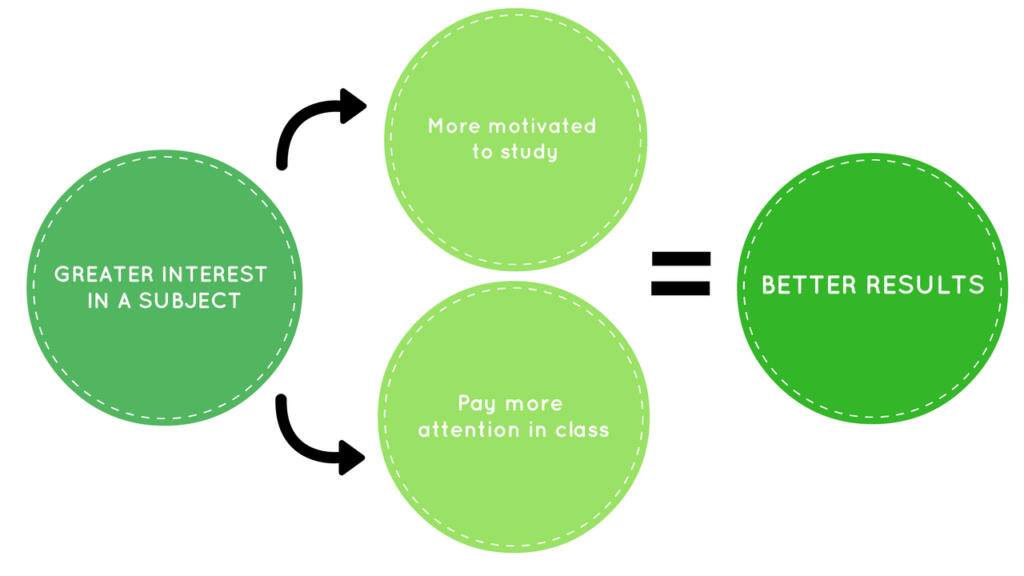The HSC subjects you do are an influencing factor in the mark you ultimately get, so that makes HSC subject selection pretty important right?
Is HSC subject selection as simple as choosing the first 6 subjects that spark your interest, or is there some strategy to it? How do scaling, exam difficulty, future higher education and career prospects affect your choice?
We’ll help give you more clarity with deciding your subjects — let’s get into it!
English as a Compulsory Component of the HSC
Choosing Your Other Subjects
How to Go about HSC Subject Selection
First things first: English
It’s a compulsory part of your HSC subject selection and is the only 2 units that will definitely count towards your ATAR.
The question is, should you do Standard or Advanced English?
Have a look through the past papers for Standard and Advanced to see the difference and the content you will be tested on for each.
There is also English EAL/D for students who have learnt English as a second language for less than 5 years – which counts towards your ATAR.
Another option is English Studies which you can choose to either count or not count towards your ATAR.
Why English?
If you’re reading this and dreading studying any English whatsoever, then you should know that English is BENEFICIAL.
Before you say, “Of course you would say that, you tutor English,” let me tell you that I was exactly like you. English was my least-favourite subject and I would ask why English was compulsory.
However, I have now realised that English is valuable for your writing, no matter what you end up working as, and helps you give greater meaning to things you would usually overlook.
I’m not trying to get all philosophical on you, but my point is: since you have to study English, you may as well appreciate its value now.
What about your other subjects?
Now that you have decided about English, the world is your oyster!
Well, not so much the ‘world’, rather the NESA HSC Course Description and your school’s subject guide.
HSC subject selection is NOT the be all and end all! Enjoyment of a subject is essential!
I’m sure you’ve asked more than one question about which subjects scale better, have the hardest exams, are the easiest or most ‘bludgy’ subjects. Pretty soon you’ll be bogged down with all the opinions you receive from your parents, teachers, friends and even yourself!
You’ll start making rash decisions like choosing dance when you can’t even do the Macarena, just because you heard it scales better, or it doesn’t have a big exam or because your aunt Judy told you that when she was in school, dance ‘was a breeze’ (disclaimer: there is nothing wrong with dance, it is only used to highlight the silliness of this example).
How to Go about HSC Subject Selection
Step 1: Consider the compulsory unit requirements
In Year 11, the requirement is 12 units – this means you must choose subjects adding to at least 10 units in addition to compulsory 2U English.
In Year 12, the requirement is 10 units – this means you can drop 2 units (generally 1 subject) if you want to. Dropping a subject doesn’t mean you have failed, it just means that you are freeing up your time to focus on your other 10 units.
Should you drop a subject?
| Dropping a subject | Not dropping a subject |
|---|---|
| You have 2 units less work, meaning you have extra time to focus on your other 10 units. | You do not have the advantage of extra time. |
| You are doing the bare minimum, meaning all 10 units will count. | You have a ‘backup’ subject, meaning that only your best 10 units will count towards your ATAR, so if you stuff up one subject, it is all good. |
I’ve heard a lot of people say you definitely must do 12 units, in case you mess up an exam.
I would say it’s entirely up to you. Personally, I saw the benefit of dropping a subject in Year 12 so I could have a whole lot of extra time and it definitely paid off for me.
That being said, if you’re going to waste that extra time or free periods watching Netflix or chatting to friends, there is no point!!
Step 2: Write down a list of subjects you 100% want to do
If you know what you what to study/work as when you finish — consider if there are prerequisite subjects or recommended subjects. Then, rank these subjects in terms of enjoyment and workload.
Want a sneak peek of what to expect? Check out our Guide to Year 11 Biology Module 1: Cells as the Basis of Life to check if the content interests you! We have plenty of other subject module guides that you can search for here!
Step 3: School subject availability
Check if the subjects you want to choose for HSC subject selection are 100% running at your school, because schools do not offer all subjects.
Keep in mind that if you really want to do a subject that is not running at your school, look up if you can study the subject as a VET course at TAFE. VET (Vocational Education and Training) Courses that are Board developed, listed here, still count towards your ATAR.
Step 4: Do the subjects you are most interested in
As I’m sure you’ve heard a teacher or some wise soul say, “You’ll do the best in a subject you are most interested in.”
This advice is gold, because:
This is particularly important for when a month before HSC exams, if you are all ‘studied out’, you will be more motivated to study a subject you enjoy. If you’re worried about getting the marks you want or scaling issues, take stress out of the equation by getting some targeted tutoring help so that you can do the subjects you’re passionate about.
Imagine you got to work at the concert of your favourite singer; you’re going to be a lot more motivated to work compared to if you had to work as the cleaner of an old restaurant. The same applies to subjects you enjoy compared to subjects you don’t enjoy.
Forget about scaling — if you like a subject and do well in it, it doesn’t matter if it is a supposed ‘low-scaling’ subject — you will do well.
Forget about the rumoured difficulty or easiness of the exam — if you enjoy it, then do it.
Step 5: Don’t focus too much on scaling!
The most debated, confusing topic when it comes to HSC subjects.
My first point still stands — do what you enjoy, regardless of scaling because ultimately, if you do well both at school and in the HSC, you will do well.
Sound obvious? Well it is.
Scaling really only matters if you get a low rank or don’t do as well in the HSC.
If it’s a subject that scales lower in that year, you may get scaled down, whereas if it’s a higher scaling subject, you may get scaled up.
The reason for scaling is because of the varying difficulty levels of subjects and different marking at different schools — basically, to make results fairer across the board.
Don’t do a high scaling subject ‘just because’ — if you flunk a high scaling subject because you’re not actually interested in it, the likelihood is that you will still get a low mark.
If you are sitting on the fence in terms of choosing Advanced or Standard English, or Advanced or General Maths, always go with (or at least start with) the Advanced subjects. Because if you are undecided, you may as well go with Advanced, which scales better. If you’ve already chosen Advanced and you’re considering dropping, check out our HSC Subject Decision Tree Tool before making your decision.
Step 6: Don’t do a subject just because of a friend or teacher!
We all have that one friend or one teacher who we wish was in or teaching every single one of our classes.
Sadly, the reality of that happening is virtually zero, so to simplify this point: choose personal, not people (i.e. choose the subjects best for you, not best in terms of the people in the class).
Get a head start on starting Year 12 and find out why the first term is so critical. Check it out here!
Step 7: Have backup HSC subjects
It is possible that you won’t be able to do a subject because it clashes with another subject you want to do due to them being run at the same time.
Just in case this happens, have some backup subjects that you want to do instead.
For example, if Biology and PDHPE are running at the same time at your school, you will have to choose which one to study.
You will need to choose another subject to reach 10 or 12 units, so having backup subjects (such as Food Tech, in the example) makes this decision easier.
Ultimately, do the HSC subjects you are most interested in and enjoy!
The title of this post was slightly misleading… sorry not sorry!
The purpose of this article was not to give you a magical list of the best 6 subjects to choose for your HSC subject selection, but rather to drill into your minds to DO WHAT YOU ENJOY — you will NOT regret it.
If you’re reading this thinking, ‘That was a waste of time, I wanted a nice, neat list of the best scaling subjects’, then I’ll leave you with this:
My friend was great at Music but loved Ancient History and both were running at the same time so she had to choose one. She did Music, because people told her to do the one she was getting higher marks in. She ended up doing well in Music, but didn’t enjoy it and still wishes she did Ancient History, even if she probably wouldn’t have gone as well as she did in Music.
Moral of the story is that the HSC can be a hard slog, but you’ll be more motivated and enjoy it more (yes it’s possible to enjoy an HSC subject) if you choose passion over performance!
Now that you know how to choose your subjects, learn about why you don’t have to aim for a high ATAR!
Looking for some extra help with your HSC preparation and subject selection?
We pride ourselves on our inspirational HSC coaches and mentors!
Get a HSC expert to help you make this important decision! Don’t do it alone! Get booked in with one of our HSC Campbelltown tutors today or our Hoxton Park tutors!
We offer tutoring and mentoring for Years K-12 in a variety of subjects, with personalised lessons conducted one-on-one in your home or at one of our state of the art campuses in Hornsby (for tutoring services in the North Shore) or the Hills (for tutoring around Rouse Hill)!
To find out more and get started with an inspirational tutor and mentor get in touch today!
Give us a ring on 1300 267 888, email us at [email protected] or check us out on TikTok!
Lauren Lai was keen to move on from anything HSC-related back when she graduated from Cheltenham Girls in 2013. However, after realising so many students go through similar academic, motivational and wider life struggles, she joined Art of Smart Education to share her experience with and encourage current students. Lauren is in her fourth year of Law/Social Research & Policy at UNSW and has a passion for Indigenous rights. Lauren loves Jesus, exploring forests and staring up at the moon for a solid few minutes whenever she gets the chance.




